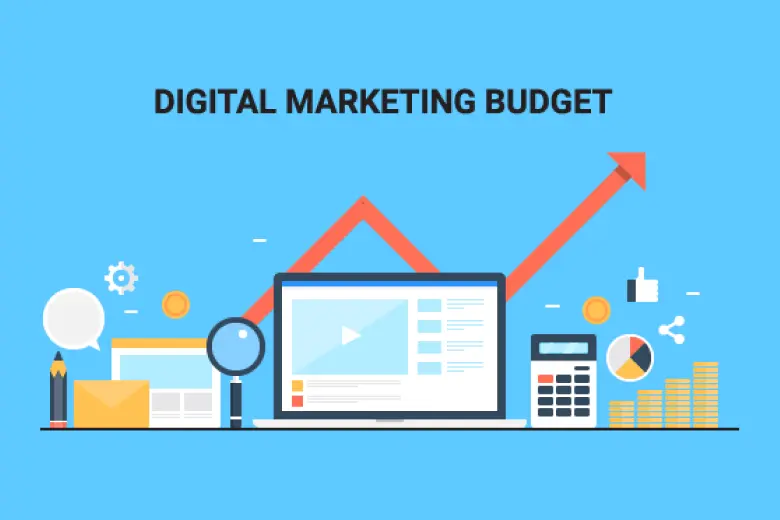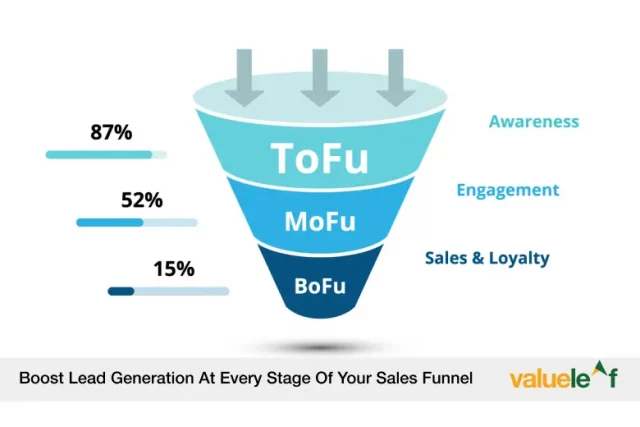A strong strategy can understand customer needs and deliver value, even with limited resources. But can a large digital marketing budget with a flawed strategy work?
Many businesses are tempted to throw money at their marketing problems, believing that a hefty budget will inevitably lead to success. However, this approach often overlooks a crucial fact: even a large and lavish budget cannot compensate for a flawed marketing strategy.
So, how can you make your strategy effective with a limited budget? Read till the end to know more.
Reasons Why a Large Digital Marketing Budget Can’t Fix a Bad Strategy
It’s easy to equate success with a hefty budget. More money means more opportunities for advertising, content creation, and tool acquisition. A substantial digital marketing budget is undoubtedly a powerful resource, but it wouldn’t fix a bad strategy.
Let’s take a look at the 5 main reasons a large digital marketing budget can’t fix a bad strategy.

Lack of Clear Objectives
A substantial budget without clear, measurable goals is ineffective. Without a defined destination, even the largest budget cannot guarantee success. A strong strategy outlines specific objectives and KPIs, ensuring that every single penny is invested towards achieving tangible results.
You can address this problem through the following points:
- Conduct a thorough SWOT analysis: Identify strengths, weaknesses, opportunities, and threats to establish clear goals and objectives.
- Create SMART goals: You have to make sure your goals are Specific, Measurable, Achievable, Relevant, and Time-bound.
- Create a customer-centric roadmap: Focus on understanding customer needs and aligning marketing efforts accordingly.
Misallocation of Resources
A large budget can be easily squandered without a strategic framework. Without a clear understanding of the target audience, effective channels, and messaging, funds can be dispersed inefficiently. A well-defined strategy optimizes resource allocation to maximize digital ROI.
You can resolve this issue by following the points below:
- Conduct market research: Identify the target audience, their preferences, and behavior to allocate resources effectively.
- Utilize analytics: Track performance metrics to identify high-performing channels and reallocate budget accordingly.
- Prioritize channels: Focus on channels with the highest digital ROI and potential for growth.
Ignoring Core Issues
A significant budget may mask underlying problems such as a weak value proposition, poor product-market fit, or a damaged brand reputation. These fundamental issues cannot be resolved with increased spending. A strong strategy addresses these core challenges before investing heavily in marketing tactics.
You can address these core issues with the following points:
- Conduct a brand audit: Evaluate brand positioning, messaging, and overall health.
- Redefine value proposition: Ensure the product or service truly addresses customer needs and desires.
Build a strong brand identity: Develop a consistent brand image across all touchpoints.
Diminishing Returns
As spending increases without strategic optimization, the law of diminishing returns takes effect. Overexposure to the same messaging or channels can lead to audience fatigue and decreased engagement. A well-created strategy ensures that marketing efforts remain fresh, relevant, and impactful.
You can counter diminishing returns with the following points:
- Test and iterate: Continuously experiment with new messaging, channels, and creative approaches.
- Personalize marketing efforts: Customize messages to individual customer preferences.
- Diversify marketing channels: Expand reach by exploring new platforms and opportunities.
Inability to Measure and Optimize
Without a clear strategy, it’s difficult to track performance metrics and make data-driven adjustments. A large budget spent without measurement is essentially guesswork. A strong strategy incorporates robust analytics to evaluate campaign performance and optimize spending for maximum impact.
You can improve Improving Measurement and Optimization:
- Implement robust analytics tools: Track key performance indicators (KPIs) to measure campaign effectiveness.
- A/B testing: Experiment with different variations of marketing elements to identify what works best.
- Data-driven decision making: Use analytics insights to inform future marketing strategies.
Steps To Create a Good Digital Marketing Strategy
A substantial budget can certainly accelerate digital marketing success but it is not mandatory. Many businesses have achieved remarkable results with limited resources through strategic planning and execution. It’s important to create a strong and effective digital marketing strategy for a successful business.
Define Your Goals
You have to clearly define what you want to achieve with your digital marketing efforts. Common goals include increasing brand awareness, generating leads, driving website traffic, and boosting sales.
You should make sure your business goals are Specific, Measurable, Achievable, Relevant, and Time-bound.
Understand Your Audience
You should develop detailed profiles of your ideal customers, including demographics, interests, online behavior, and pain points.
You can use surveys, social media insights, and website analytics to gather information about your audience.
Competitors Analysis & Right Channels
Identify your main competitors and get to know their digital marketing strategies. You should look at their content, social media presence, SEO strategies, and customer engagement.
You should select platforms. Decide which digital channels (e.g., social media, email, SEO, content marketing, PPC) are most effective for reaching your audience. Allocate your budget and resources based on the potential return from each channel.
Content Strategy & SEO Best Practices
You should focus on producing high-quality content that addresses the needs and interests of your audience. Utilize a mix of blog posts, videos, infographics, podcasts, and social media posts to engage your audience.
You should ensure your site is user-friendly, mobile-responsive, and fast-loading. Conduct keyword research and integrate relevant terms into your content to improve search engine rankings.
Manage Campaigns & Measure Results
Develop and launch campaigns that align with your goals and target audience. You can also use analytics tools to track the performance of your campaigns and make necessary adjustments.
You must regularly review key performance indicators (KPIs) such as website traffic, conversion rates, and engagement levels. Use the data to refine your strategy and improve future campaigns.
To Conclude
A large digital marketing budget cannot compensate for a flawed strategy.
Although significant financial resources can increase reach and visibility, they cannot replace the need for an effective digital marketing strategy. A successful marketing strategy requires a clear understanding of target audiences, well-defined goals, and a focus on creating valuable content that resonates with customers.
Without these foundational elements, even the most substantial budget will give inefficient results.
Frequently Asked Questions
Q. Can a large digital marketing budget compensate for a poor strategy?
A. No, a large digital marketing budget cannot compensate for a poor strategy. A successful marketing campaign requires a clear understanding of the audience and well-defined goals, making strategy more crucial than budget size.
Q. Why is having a solid digital marketing strategy more important than a big budget?
A. A solid digital marketing strategy is more important than a big budget because it ensures targeted efforts that effectively engage the audience and achieve business goals. Without a strategic approach, even a large budget can lead to wasted resources and ineffective results.
Q . How to split a digital marketing budget?
A. To split a digital marketing budget effectively, allocate funds based on your business goals and target audience, prioritizing high-impact channels like SEO, social media, and PPC.
Q . What are the risks of relying solely on a large budget for digital marketing success?
A. Relying solely on a large budget for digital marketing success can lead to inefficient spending and poor targeting, resulting in a low return on investment. Without a strategic plan, campaigns may fail to connect with the right audience and achieve desired outcomes.
Q. How does your budget affect your marketing strategy?
A. The budget affects the scale and reach of your marketing strategy, influencing the platforms and types of content you can use. A larger budget allows for more extensive campaigns and experimentation, while a smaller budget requires prioritizing cost-effective channels and tactics.
Q. How much of the budget should be spent on digital marketing?
A . The amount spent on digital marketing typically ranges from 6% to 12% of a company’s revenue, depending on the industry and business goals.



